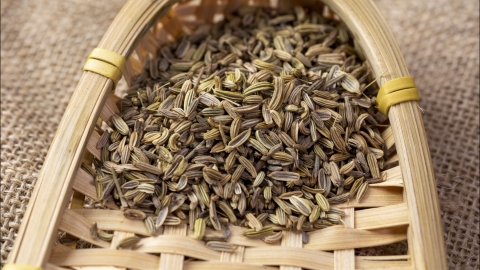Who should not eat fennel?
Fennel is a food with both medicinal and dietary uses. It has a warm nature and a pungent taste, and can warm the kidneys to dispel cold, harmonize the stomach, and regulate qi, but it is not suitable for everyone. Generally speaking, fennel is not recommended for people with yin deficiency and excessive internal heat, those with weak spleen and stomach who are prone to diarrhea, those allergic to fennel, patients with eye diseases, and patients with heat-related conditions, to avoid aggravating discomfort or causing health problems. Detailed analysis is as follows:

1. People with Yin Deficiency and Fire Hyperactivity: This group often experiences symptoms such as tidal fever, night sweats, dry mouth, sore throat, and warm palms and soles. The warm nature of fennel can intensify internal heat, worsening symptoms like dry mouth and night sweats, and may also lead to constipation and sore throat, disrupting the body's balance.
2. People with Weak Spleen and Stomach Prone to Diarrhea: Fennel contains volatile oils that can irritate the gastrointestinal tract. Those with weak digestion and low intestinal tolerance may experience increased gastrointestinal burden, abnormal intestinal motility, worsened diarrhea, and symptoms such as bloating and abdominal pain, which can affect digestion and absorption.
3. People Allergic to Fennel: Some individuals are allergic to components in fennel and may experience itching, rashes, or hives after consumption. Severe reactions may include oral tingling, throat swelling, and difficulty breathing; strict avoidance is necessary to prevent allergic reactions.
4. Patients with Eye Diseases: Fennel promotes internal heat, while eye conditions such as conjunctivitis and styes are often associated with heat pathogens. Consuming fennel may intensify heat in the eyes, causing increased redness, pain, and secretion, which is detrimental to recovery.
5. Patients with Heat-Related Conditions: During episodes of heat-related illnesses such as wind-heat colds or acute tonsillitis, there is significant internal heat. The warming properties of fennel can compound the heat pathogen, prolonging the illness and worsening symptoms such as fever and pain.
In daily consumption, fennel should be used according to individual conditions and in moderation. Individuals with underlying health conditions should first understand the properties of the food and how they align with their own condition, maintaining a balanced diet and regular作息 to support overall health.








